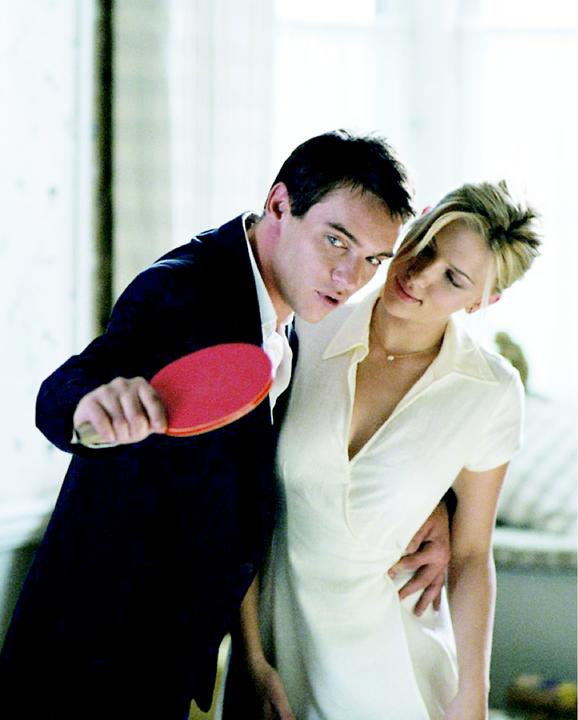Not only has Allen gotten out of his rut, he's gotten out of New York. His newest film, Match Point, is not a comedy about the lives of neurotic New Yorkers who largely resemble and/or are played by Woody Allen. Match Point is, in fact, a blackly witty drama about social climbing and marital infidelity amid London's upper crust. It sits alongside Gosford Park or Remains of the Day far more comfortably than it does Bullets Over Broadway or Curse of the Jade Scorpion. If not for the credits, you'd be hard-pressed to even guess this was a Woody Allen film.
Jonathan Rhys-Meyers (Bend It Like Beckham, “Elvis”) stars as Chris, a former Irish tennis pro who never quite hit the big time and is now staring down the barrel of a major life change. Limping into his thirties, Chris moves to London and gets a job teaching tennis at an upscale country club. There, he runs into old pal Tom Hewett (Matthew Goode, Chasing Liberty), who introduces him to his well-to-do family. Tom's pretty but shy sister Chloe (Lovely & Amazing's Emily Mortimer) takes a shine to Chris, and the two become an item. Things are soon looking up for working-class Chris, who finds himself in a new strata of society, tapped for marriage by Chloe and an executive position by her father (Brian Cox, speaking with a British accent for a change).
One fateful day, however, Chris bumps into the mesmerizing Nola (Scarlett Johansson), a would-be actress who has recently moved to London looking for work. Chris finds himself instantly smitten by the woman, a situation that becomes even more dangerous when it is revealed that Nola is engaged to Tom.
Despite all his better judgment, Chris manages to strike up an affair with the seductive but insecure Nola. In getting sexually involved with Nola, Chris is risking everything: His marriage, his newfound fortune, his cushy job and his friendship with Tom are all in jeopardy.
Up until just past the halfway point, Match Point plays out like a witty, sexy modern-day retelling of some Jane Austin novel. Who will end up marrying whom? The drama is slow and laced with monofilament threads of tension. The dialogue comes not in quick Woody Allen bursts of humor, but in realistic snatches of cocktail party conversation. For the first hour or so, it's hard to even guess where Allen is going with this film. Eventually, however, we come to realize that the film continues Allen's obsession with grim, fate-filled Russian literature–as glimpsed in Love and Death and Crimes and Misdemeanors.
There's a brief, but telling moment in Match Point when Chris thumbs through a copy of Dostoyevsky's Crime and Punishment. Chris is a poor Irish kid, but he's trying to upgrade himself–socially, financially, intellectually. After a moment or two, however, he drops the book and picks up the Cliff's Notes: He's reading the book, but he's not quite getting the moral. This is a crucial point, as the inevitable solution to Chris' problem (stuck between sexy femme fatale and rich wife) begins to present itself. I won't go into too many details, so as not to spoil the narrative, but it does involve a few shocking and blackly funny twists.
There are those who will find a noticeable incongruity between Match Point's genteel beginning and its almost film noir ending. But Allen deserves credit for both patience and skill here. The film's script is among his most carefully constructed. Pay attention to Chris' speech about the power of luck and his opening credit metaphor about the mechanics of tennis. Allen is building up to something here. It takes a while, but the payoff is a doozy.
Welcome back to the top of your game, Mr. Allen. It's been a while.



